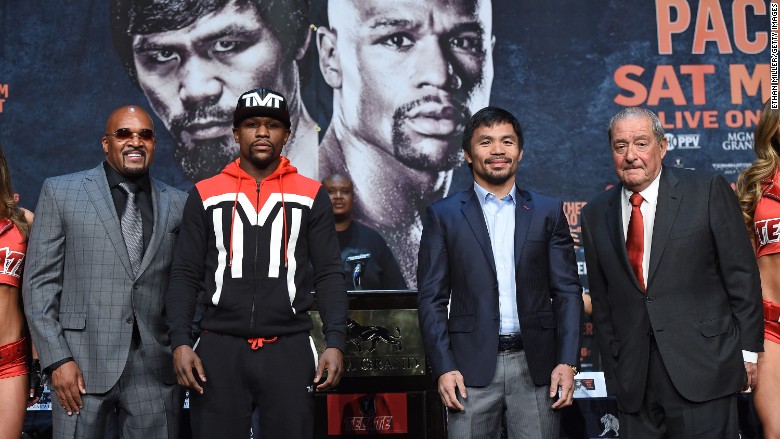
Joshua Zecher is a principal at 463 Communications, a corporate communications consulting firm, which works with the Digital Citizens Alliance on piracy issues.
The most memorable aspect of the recent match-up between Floyd Mayweather Jr. and Manny Pacquiao may not have been the one-sided fight. It was the emergence of pirated live streaming of sports events.
CEO Dick Costolo of Twitter, which owns the live streaming app Periscope, boasted -- on Twitter, of course -- that Periscope was the real winner of the night. But he may live to regret that hubris.
Periscope and its rival live streaming app Meerkat took advantage of an old adage: Everyone loves something for nothing.
But should Costolo be bragging about enabling an untold number of people to avoid paying for a live sports event?
Related: LIvestreaming scofflaws are tech's new innovators
The live streaming apps enable anyone to use their smartphones to broadcast live video to anyone across the Internet. Periscope and Meerkat were populated by many people broadcasting the fight by holding their smartphones up to their televisions. One person even live streamed the fight from the 20th row of the MGM Grand Garden Arena.
This isn't innovation. It's theft, pure and simple.
If you walk into a department store and leave with a shirt without paying, did you get that shirt for "free" or did you steal it? Why is not paying for something you use in the virtual world any different than in the physical world?
One Periscope feed of the fight had more than 10,000 people watching at its peak. With the pay-per-view price at a $100 a pop, that one feed accounted for $1 million in stolen property.
Stealing content is as old as content itself. It's become all too common for music, movies and TV shows. But there's something especially diabolical about stealing live events. With those, it's the live stream that's the actual revenue-generating product. And it's a one-time deal.
What can be done?
First, livestreaming companies should stand up and take responsibility for their products.
There are controls that can be put in place by Meerkat and Periscope to make content theft much more difficult. Data analytic capabilities have evolved to enable these companies to proactively identify copyrighted content. Currently, they only appear to take down content when they are alerted to an issue.
Second, fans must take responsibility as well and refuse to watch pirated livestreams. You wouldn't use a stolen car; why would you watch a stolen event?
Lastly, sports leagues and other producers of live events need to tell their story. They need to educate all of us about the ramifications of piracy and content theft. What does it mean to consumers, as well as performers and athletes? Will it mean higher prices or just fewer entertainment options?
In the world of Silicon Valley, where Meerkat and Periscope live, the focus is on disruption. Those companies that disrupt the norm to innovate and transform industries are the most valuable. Think what Uber has done to the taxicab industry.
But in this case, there's nothing innovative about highway robbery.
Joshua Zecher has more than 20 years of experience in business-to-business journalism, public relations and marketing. The opinions expressed in this commentary are solely those of the author.

